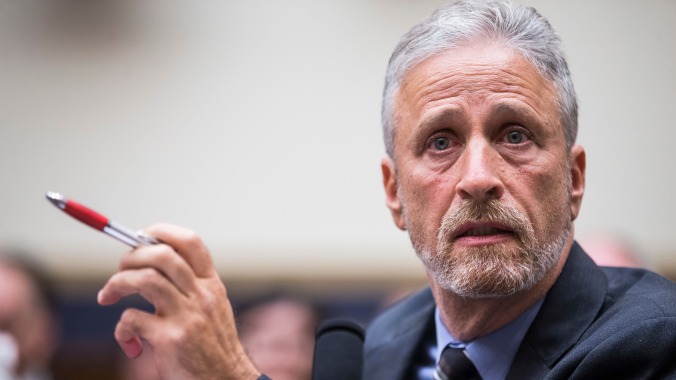Jon Stewart addresses long-criticized diversity issues during his Daily Show run

Over the past month, the entertainment industry has been experiencing an overdue reckoning with its treatment of the Black community in waves. The most current wave we’re witnessing is taking place in the comedy world as veteran comedians use this time to think deeply about the years (decades, in some cases) of criticism they’ve received for past racist content. Unlike his fellow industry mainstays Tina Fey and Jimmy Kimmel, Jon Stewart isn’t suddenly apologizing for past instances of blackface. He is, however, discussing his past issues with inclusion in his Daily Show writers room and his previous, innate defensiveness when it came to justified criticism.
During an appearance on Breakfast Club Tuesday morning, Stewart accepted his role in upholding structures of systemic racism through a predominantly white writers room. He also touched on his previous treatment of former contributor Wyatt Cenac, who he told to “fuck off” after getting called out for a racist Hermain Cain impression. “What’s hard about that for people is you get defensive,” Stewart said. “Nobody likes to be called on their shit, especially when they feel like it’s not really their shit. But what you realize is, just stopping active persecution isn’t enough to dismantle. It has to be actively dismantled.”
On his highly publicized reaction to Cenac’s criticism:
“It took me a long time to realize that the real issue was that we hired a person who is Black… [and] they felt like they’re carrying the weight of representation. So they suddenly feel like, ‘I’ve got to be the speaker of the race.’ So we think we’re doing the right thing, but we’re not doing it in the right way. Those were hard lessons for me, and they were humbling lessons. And I was defensive about them and still didn’t do it all right.”
